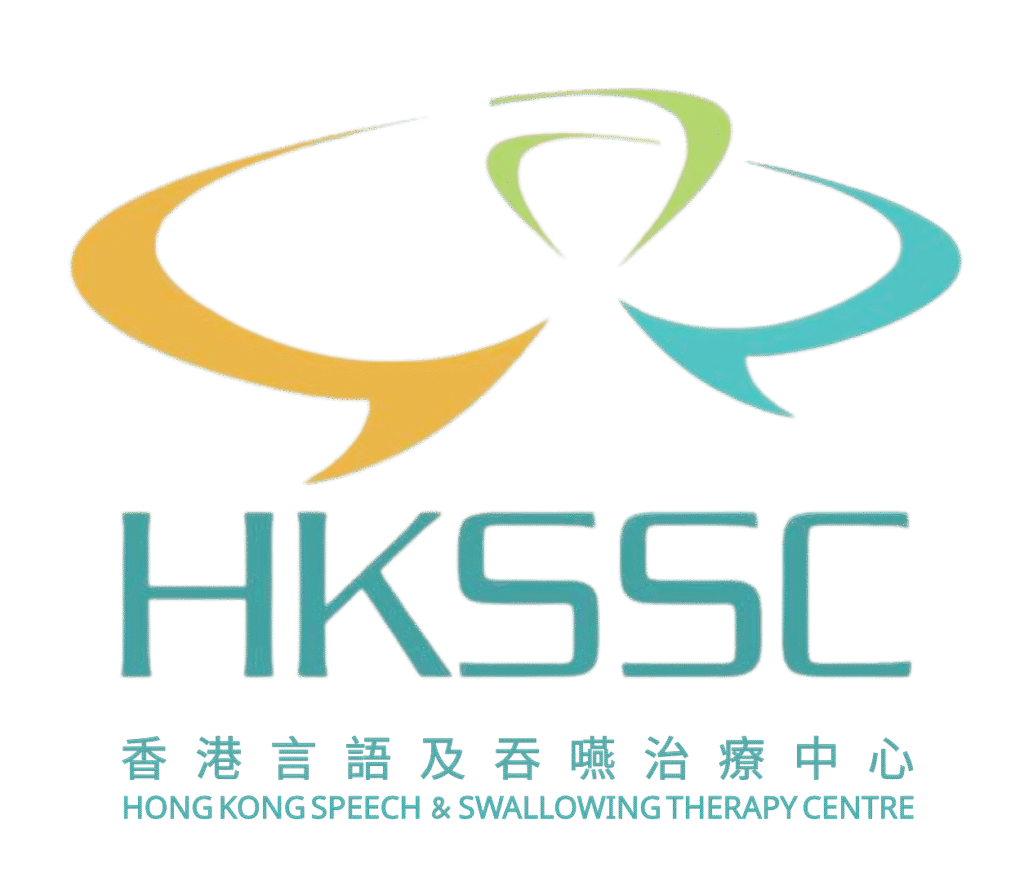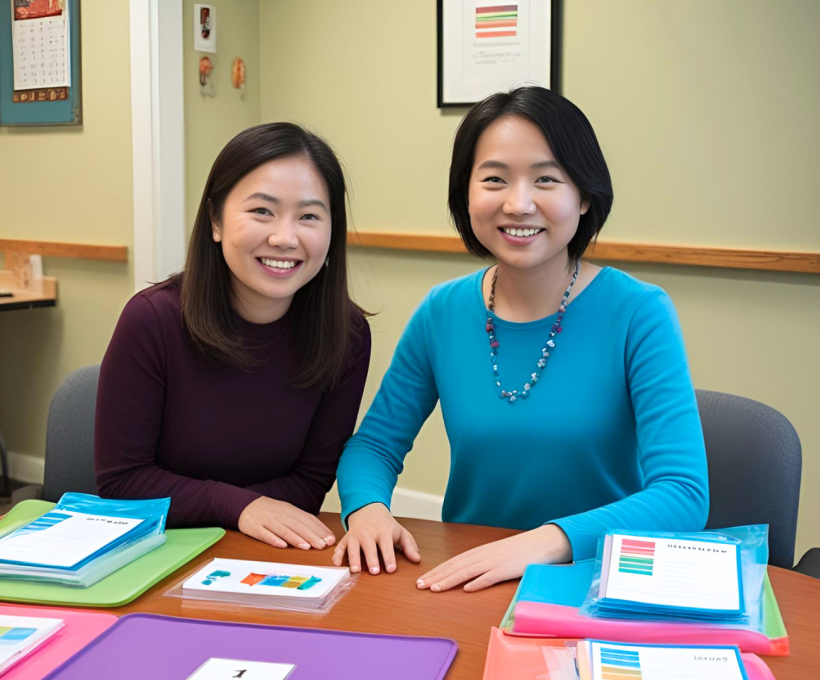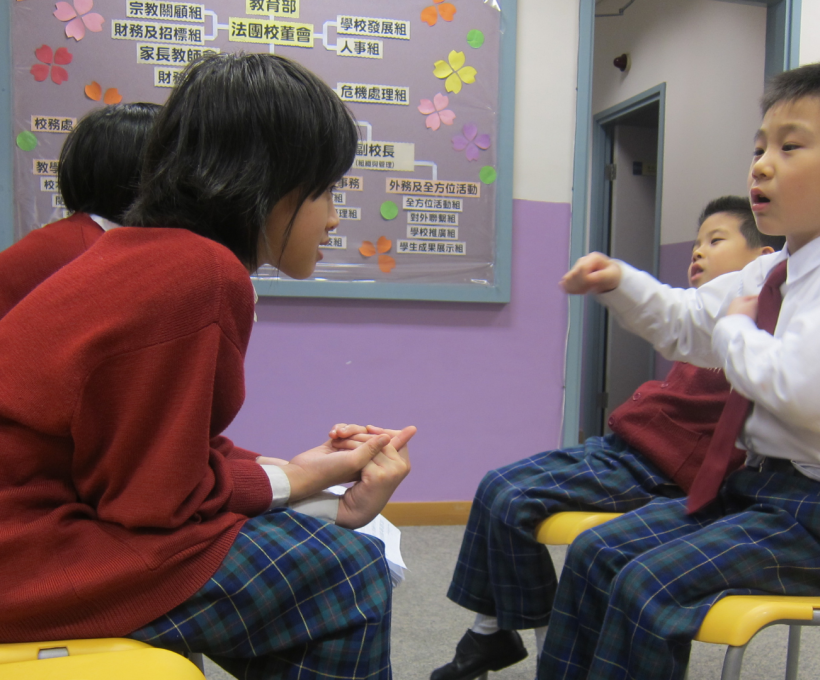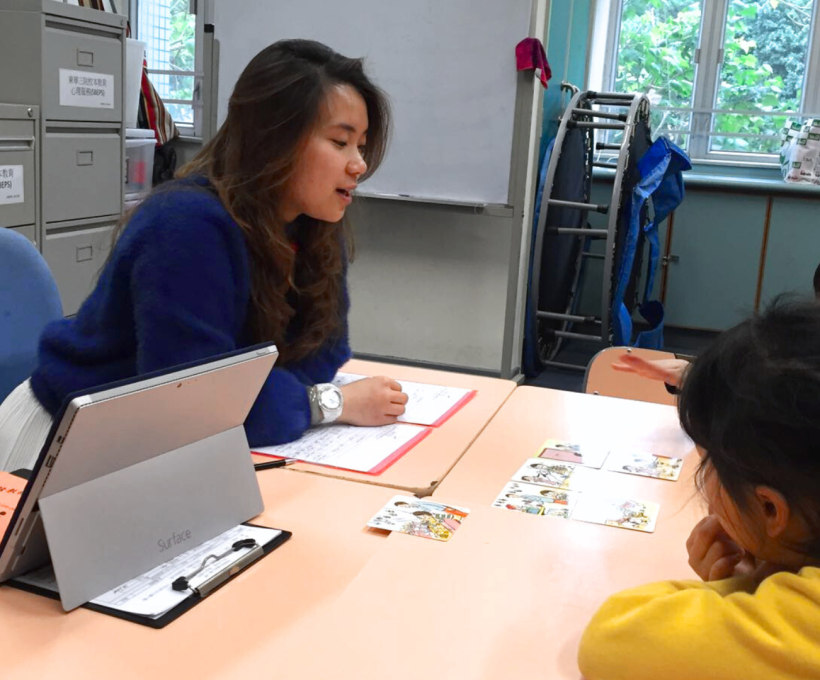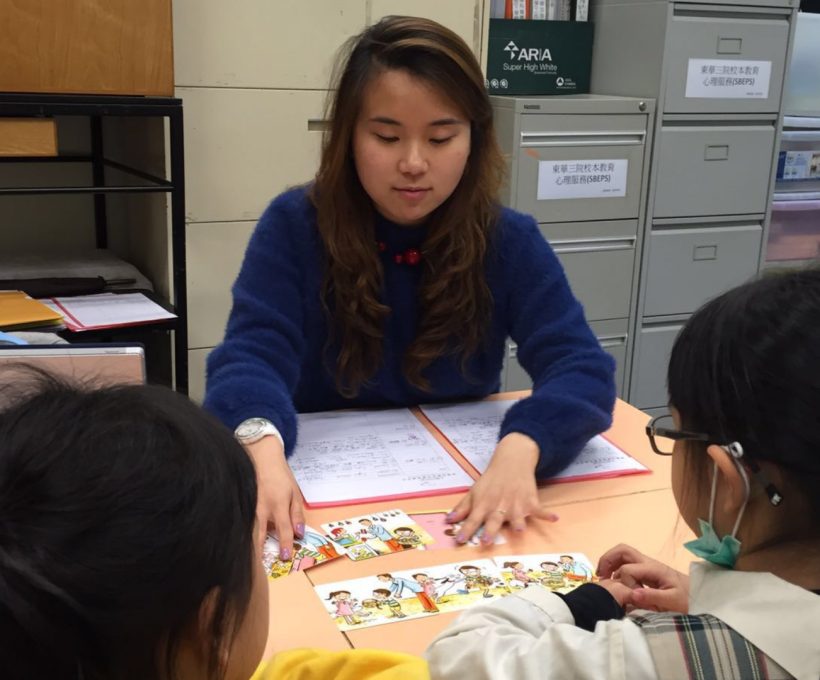-
Outreach Services
Service Types
Outreach Services
School-based speech therapy service, elderly service for care centre and nursing house, conduct seminars and workshops etc.
Therapy Services
Online assessment, speech therapy, speech and language therapy, play therapy, fluency therapy, stuttering therapy, autism therapy, feeding & swallowing therapy, stroke rehabilitation etc...
- School-based Speech Therapy Services
Look Forward to Working With You
Please feel free to call 2311-6330 or 5403-3684 to contact us. We will explain the content and application process of our school-based services to your school. We can also arrange for a speech therapist to visit your school for a discussion, listen to your needs, and tailor a “School-Based Speech Therapy Service Plan” according to your school’s requirements.
Overview of School-Based Speech Therapy Services

Hong Kong Speech and Swallowing Therapy Center (HKSSC) is dedicated to improving speech, communication, and swallowing issues for individuals with speech disorders, swallowing difficulties, and cleft lip conditions. In 2006, we launched our School-Based Speech Therapy Services, providing comprehensive speech therapy support to participating schools through outreach services, leveraging over twenty years of experience in speech therapy. Our service network covers over a hundred primary and secondary schools and has received high recognition from collaborating institutions, being warmly welcomed by teachers and parents over the years.
Since the program’s inception, through the treatment by on-site therapists, teacher cooperation in the classroom, and parental training at home, over eighty percent of students receiving therapy have shown significant improvement in their speech abilities, with over a quarter of students achieving complete recovery. The results are remarkable, and in the long run, we can effectively enhance the learning outcomes of the entire school student body.
School Level
At the center, we are committed to improving speech, communication, and swallowing issues for individuals with speech disorders, swallowing difficulties, and cleft lip conditions.
Through our School-Based Outreach Services, we utilize standardized assessment tools such as Chinese reading tests, assessments from the University of Hong Kong’s Communication Disorders Center, and pronunciation tests to ensure targeted assessments and address the needs of each student.
Assessment and Treatment:
- Conduct screening and diagnostic language assessments for students suspected of having speech disorders.
- Prepare reports and develop treatment plans, making appropriate referrals for students.
- Standardized assessment tools include Chinese reading tests, the University of Hong Kong Communication Disorders Center; Hong Kong Cantonese pronunciation tests, Hong Kong Department of Health Child Physical and Intellectual Tests, and City University of Hong Kong; Hong Kong Children’s Oral Language (Cantonese) Ability Scale, Hong Kong Department of Health Child Physical and Intellectual Tests, and City University of Hong Kong.
- Provide different modes of speech therapy services based on student needs, including individual, group, or in-class support to assist students in their classroom learning.
Prevention:
- Establish annual plans for schools in the areas of “treatment,” “improvement,” and “prevention.”
- Organize school-wide thematic activities such as “Voice Care Month” to raise awareness and promote sound protection.
- Hold school-wide activities like sound contests to encourage students to care for their voices, enabling the school to optimize resources and design enhanced plans effectively.
Improvement:
- Offer workshops and seminars on speech therapy techniques integrated into campus activities, encouraging teachers to further understand treatment information.
- Provide student training activities (non-speech group), including projects like “Little Therapist” and “Rainbow Reading Fun,” to learn narrative skills and different communication methods to foster communication skills and confidence.
School-Wide Thematic Activities:
- Produce campus TV short films and posters to deepen students’ knowledge.
- Use surveys/competitions to test students’ awareness of themes.
Teacher and Student Level
Our School-Based Therapy Services encompass various modes, including individual, group, and classroom support. Individual therapy sessions are tailored for students with moderate to severe speech issues, focusing on specific communication and learning needs. Group therapy sessions, such as storytelling groups, pronunciation groups, and voice care groups, provide students with opportunities to develop language skills in a supportive environment. Additionally, our classroom support program involves collaborating with teachers to seamlessly integrate speech therapy techniques into classroom activities, ensuring comprehensive student development.
Therapy and Workshops:
- Conduct lectures/workshops integrating speech therapy elements into campus activities, encouraging teachers to gain a deeper understanding of treatment information.
- Topics include understanding and helping students with reading and writing difficulties and analyzing communication problems among students on campus and assisting with solutions.
- Provide personalized speech therapy services through various modes such as individual, group, or classroom support depending on the needs of the students.
- Set treatment goals based on assessment results, developing personalized treatments for moderate to severe cases.
- Group therapy sessions address communication issues and grade levels through activities like storytelling and pronunciation groups.
Observation:
- Invite teachers to observe speech therapy classes during vacant periods to understand students’ abilities and targeted intervention methods.
- Conduct video teaching sessions with parental consent to explain treatment methods.
- Hold case meetings with relevant teachers including class teachers, counseling teams, Chinese language teachers, etc., to discuss students’ speech issues and if needed, collaborate with the school to establish a “Personal Self-Learning Plan” for students.
Collaborative Teaching:
- Collaborate in lesson preparation so that therapists and teachers can further cooperate.
- In oral unit lessons, therapists and teachers discuss and teach students different skills and areas, utilizing each other’s strengths to benefit all parties (students, teachers, therapists).
- Therapists lead students in narrative organization and content, while teachers deepen students’ application methods and vocabulary.
Teacher Peer Observation Culture:
- Enhance collaboration with teachers
- Implement interactive teaching or peer observation programs
- Incorporate speech training goals into classroom instruction
- Evaluate the effectiveness of teaching plans through discussions
- Develop specific strategies for the school based on student and administrative needs, focusing on treatment plans, group arrangements, school activities, teacher collaboration, and parental involvement.
Cultivating an Inclusive Culture:

Established in 2006, HKSSC has over 20 years of experience in speech therapy services.
We’ve been providing therapy services to over 190 schools and nursing homes.
- (852) 2311 6330
- (852) 5403 3684
- (852) 8148 6330
- info@hkssc.com.hk
- Room 1216, 12/F, 133 Wai Yip Street, Kwun Tong, Kowloon, Hong Kong
- Monday - Saturday 10am - 6pm (By appointment)
Our Company
Copyright © 2025 HKSSC All rights reserved
Site Map | Disclaimer | Privacy Policy | Statement
